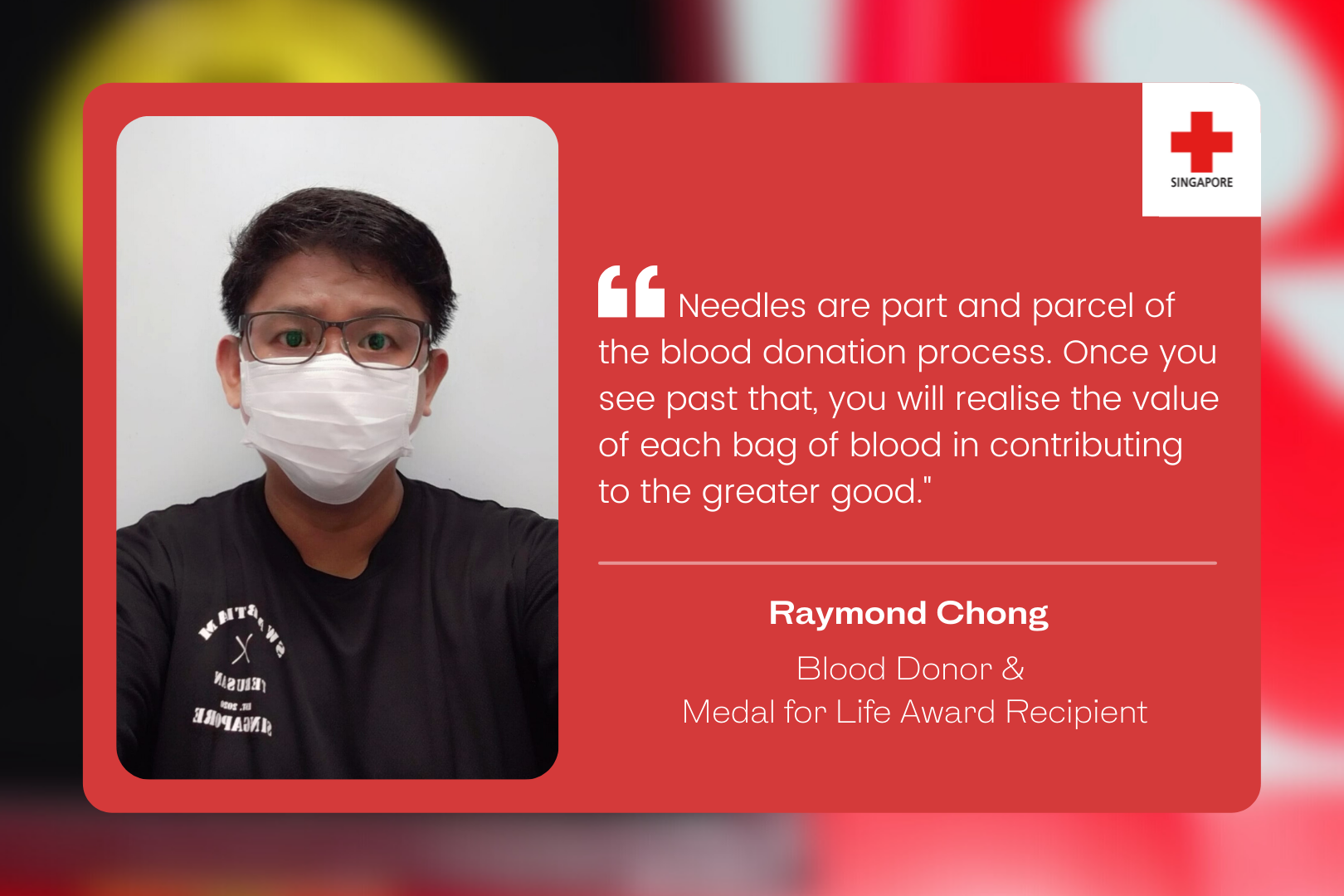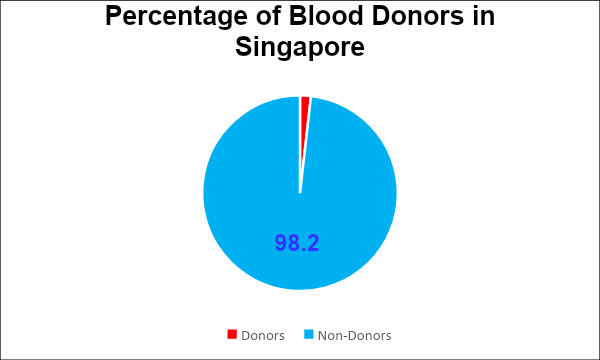
When his father underwent heart bypass surgery in 1993 and required more blood, Raymond Chong, then aged 13, was too young to be of help. But he made a vow to donate blood until he could no longer do so. In 2020, Raymond amassed 203 blood donations. He encourages others to step forward to donate blood regularly as well.
When his father underwent heart bypass surgery and required more blood in 1993, Raymond Chong, then aged 13, felt helpless as he was too young to contribute.
"The nurse informed my mum and me that my father needed more blood for his surgery. I promised myself that if my dad pulled through the operation, I will donate blood when I come of age and keep on donating blood until the blood bank deems me unfit for blood donation,” he shares.
Fortunately, the operation was successful, thanks in part to the altruistic contributions of blood donors.
Keeping His Vow
Raymond has been keeping his vow by diligently donating blood since he was 17, inspired by the blood donors who saved his father's life. He has also pledged to continue giving the gift of life until he is no longer able to do so.
“I believe in karma and that everything in life will come full circle. Continuing with my blood donation will only do more good than harm," he says.
Now aged 41, Raymond was the youngest recipient of the Medal for Life Award in 2021, having amassed 203 blood donations in 2020. He managed to accumulate more than 200 donations because he is an apheresis donor, donating plasma and platelets at Bloodbank@HSA monthly.
National Needs – Urgent Call For Blood
As it stands, blood donors constitute only 1.8 per cent of the residential population—a tiny percentage to shoulder the burden of the nation's blood transfusion needs.

Regardless of whether there is a pandemic, it is vital to have a continuous supply of blood. Blood saves lives during emergencies and helps patients with cancer, leukaemia, thalassaemia, bleeding disorders and those undergoing major surgeries. Blood donors are the lifeline for the above-mentioned groups—one unit of blood can save three lives!
1 hour = 15 units of blood used in Singapore
1 day = 400 units of blood used in Singapore
1 year = 120,000 units of blood used in Singapore
Blood is required for surgical procedures and on an emergency basis. With the establishment of new hospitals and more advanced life-saving surgeries being performed, the demand for blood will inevitably increase. It is fundamental to ensure a continuous supply of blood to save lives.
Raymond encourages people to continue donating blood even amid the COVID-19 pandemic.
“We cannot control whether our family, friends or loved ones would contract COVID-19. But we can control the fact that if people need blood and its derivatives, we have done our part by continuing with blood donation," Raymond muses.
It is too late to think about blood donation only when there is an inadequate supply of blood.
Everyday Heroes: Committed and Regular Blood Donors
It is through committed and regular donations that blood shortages can be obviated, the same way umbrellas are used to stave off rainy days. Imagine what would happen if there was an insufficient supply of blood in hospitals? How would people undergo major surgeries? How would the lives of patients with thalassaemia or cancer be saved?
"People who are blessed with good health can choose to donate blood regularly, as that will be of great help to those who need it. It also ensures there will be ample blood supply should the need arise,” says Raymond, who works with the Health Promotion Board.
Raymond regularly sets aside time for blood donation. But it takes dedication to incorporate blood donations into his monthly schedule.
“I would try to free up one weekend morning each month by clearing all work and chores during the week, and book the earliest time slot available for the subsequent donation following each donation. Making an appointment minimises the waiting time,” he explains.
Raymond proposed strategies to inspire first-time donors to give blood and do so regularly.
"Unless blood donation becomes a culture or a way of life, it is imperative to conceive innovative ideas, programmes and well-thought campaigns to entice non-donors to step out of their comfort zone to make their maiden donation and incorporate blood donation into their daily lives. Certain policies on the welfare and recognition of blood donors should be revisited and re-examined occasionally to ensure donor retention," he emphasises.
Lionheart: Courage Overcomes Fear
For those fearful of needles, Raymond encourages, “Needles are part and parcel of the blood donation process. Once you see past that, you will realise the value of each bag of blood in contributing to the greater good. You will learn to accept it and move on.”
At the blood bank, donors can make either whole blood or apheresis (plasma/platelets) donations. Whole blood can be donated quarterly, while apheresis can be undertaken on a monthly basis.
Living Legacy: The Gift of Life
There will always be a demand for blood. It is blood that ties humanity together, and a lack of blood may be the determining factor between life and death.
To give blood is to give life, and there are few things nobler than the gift of life.
Therefore, we urge all who are healthy and well to come forward to give the gift of life for the greater good of humanity.
By Lee Kher Shing, Volunteer
Copyedited by Michael Gutierrez
|
Keen to donate blood or organise a blood drive? Click here. |

